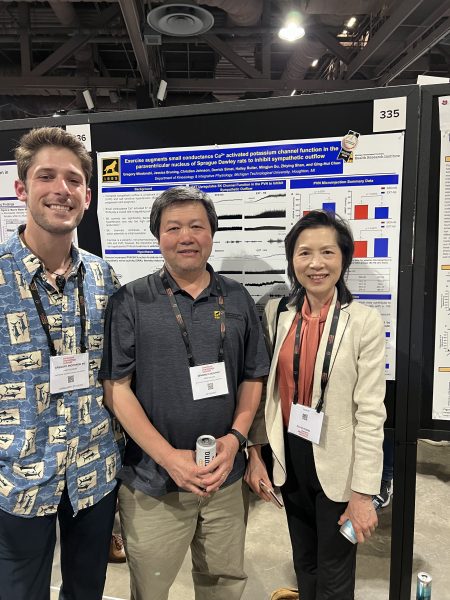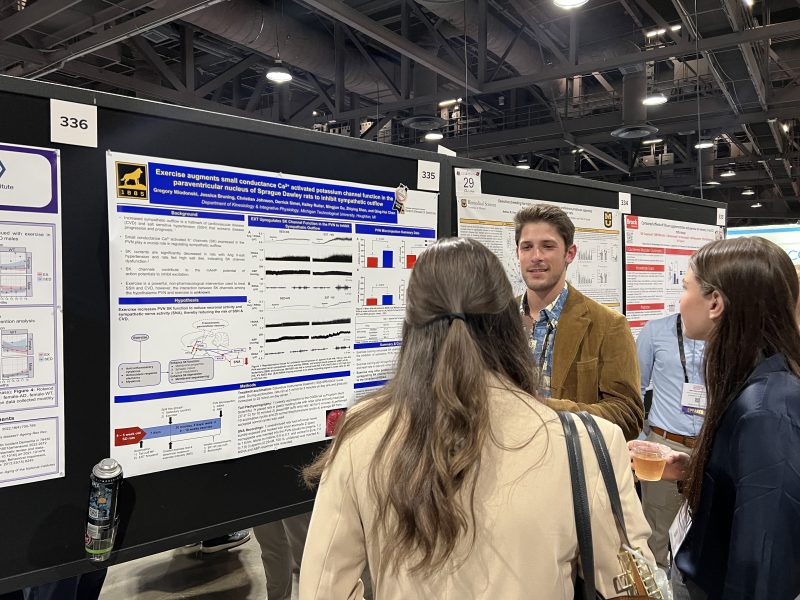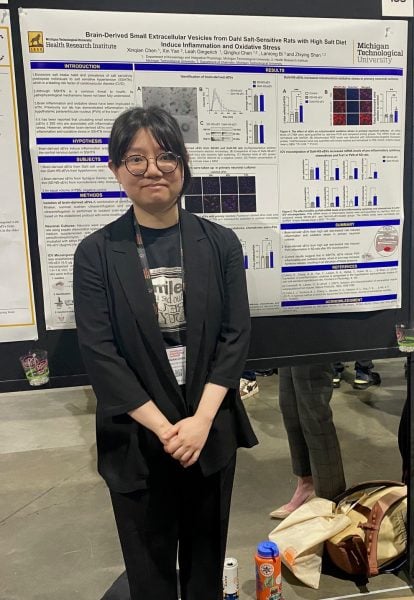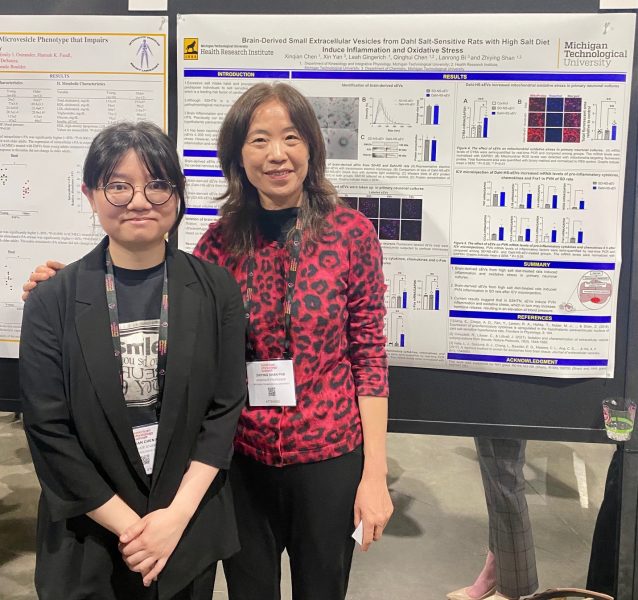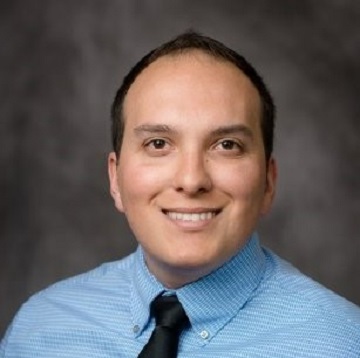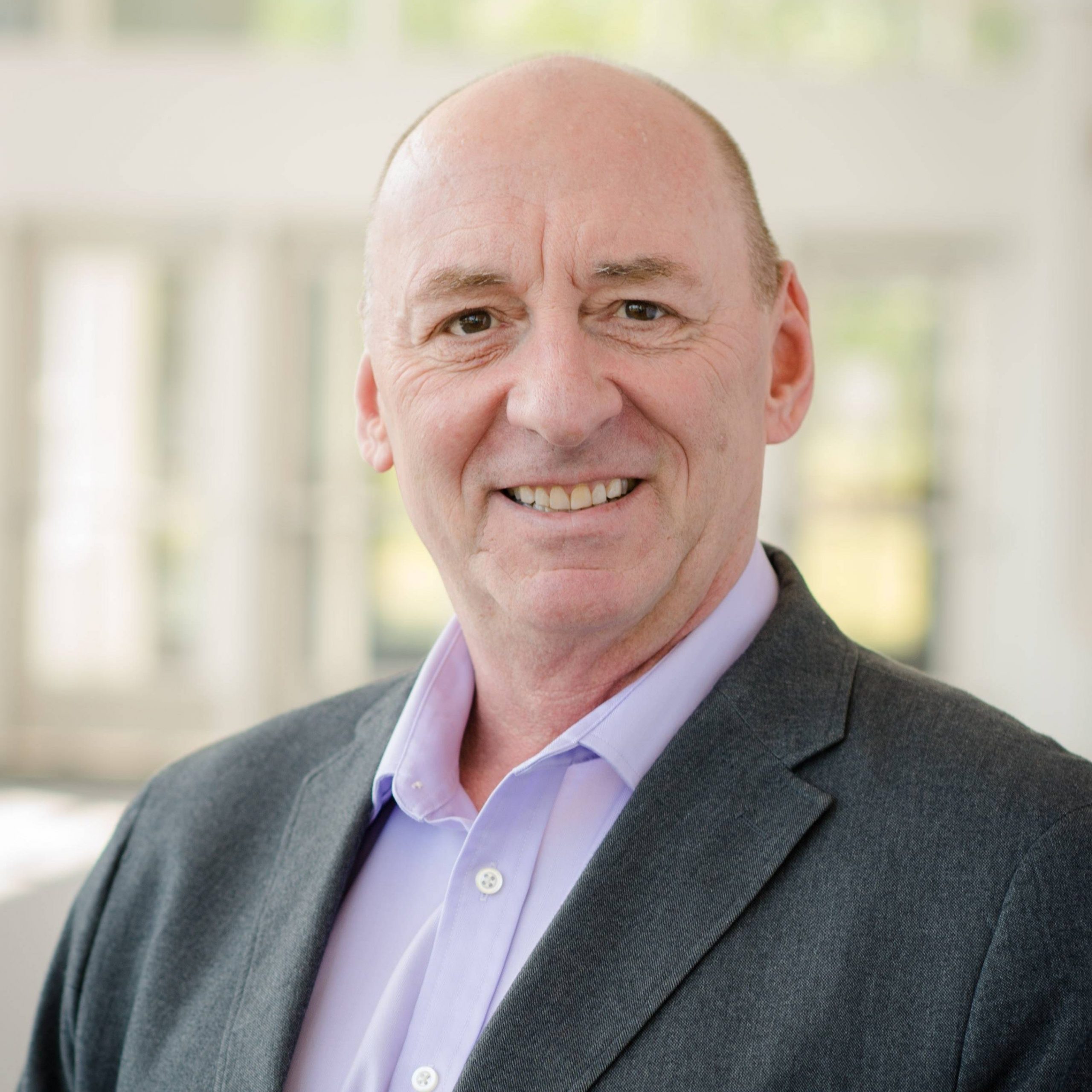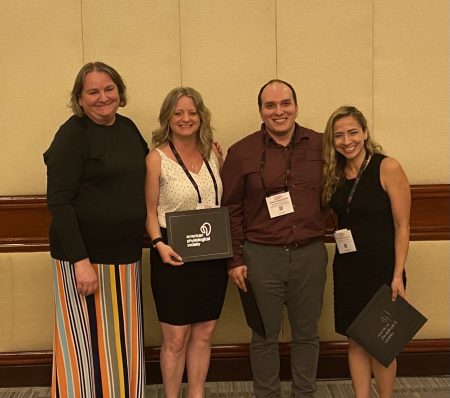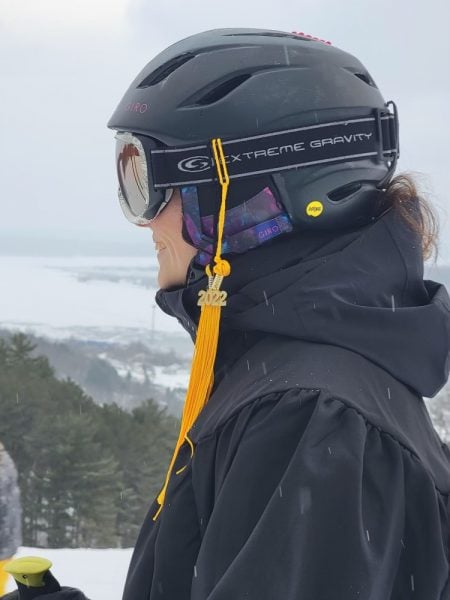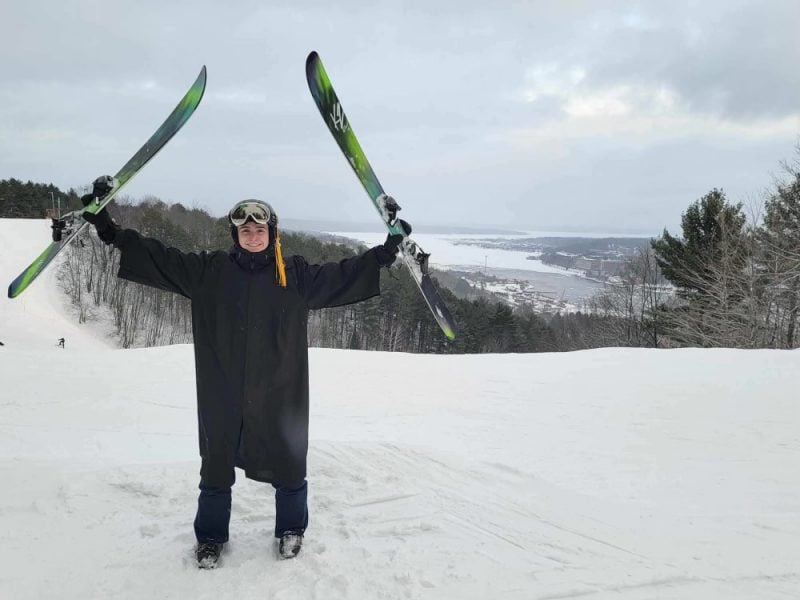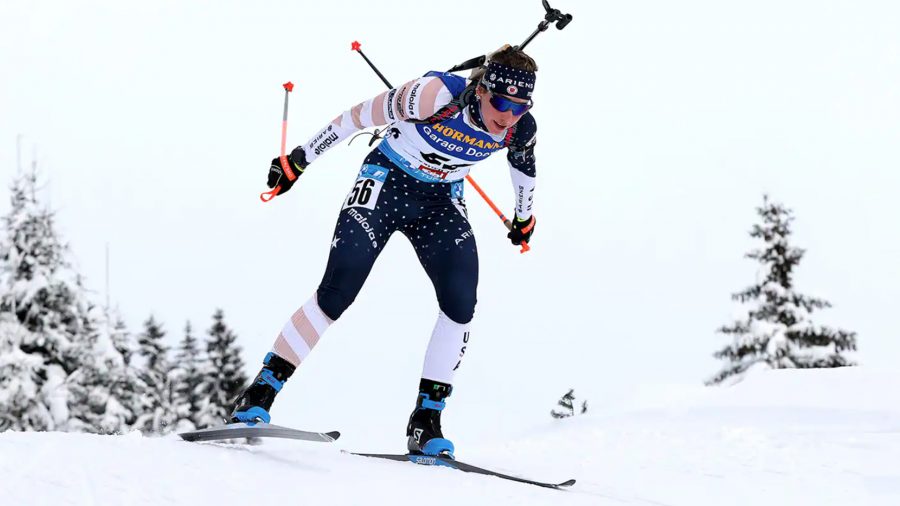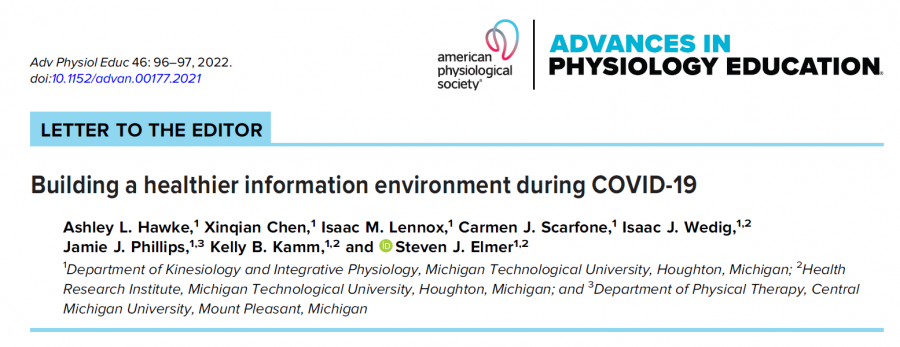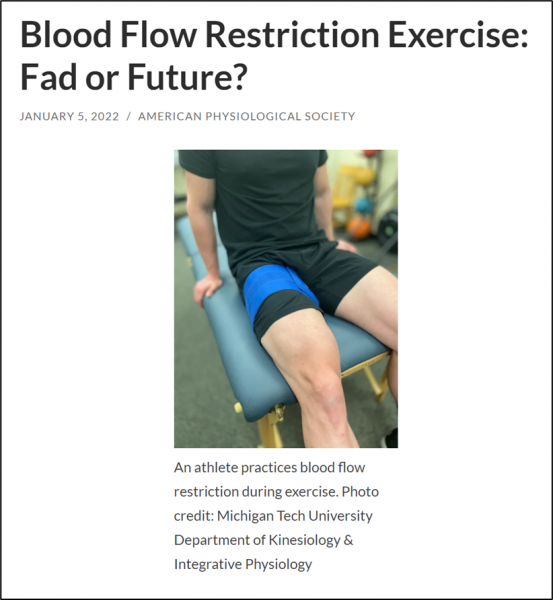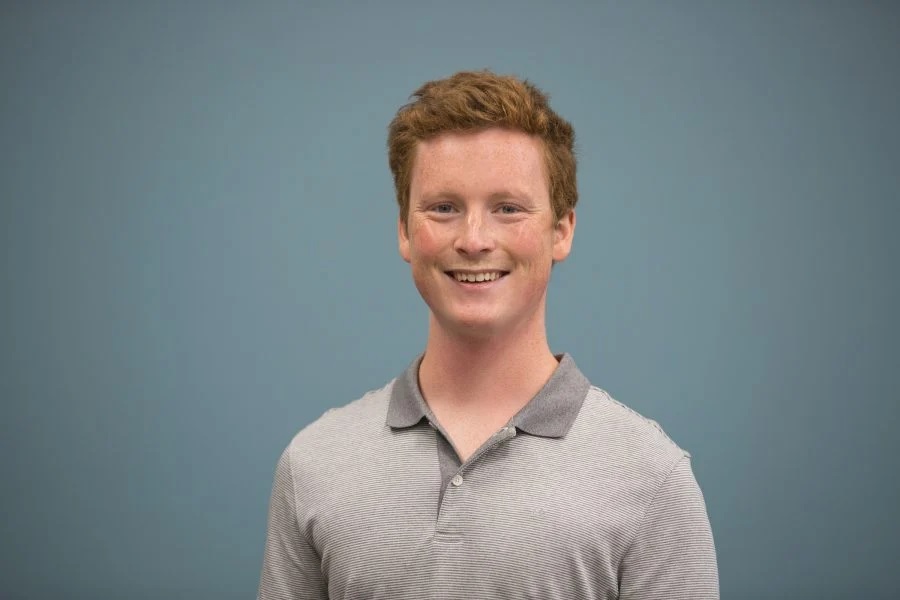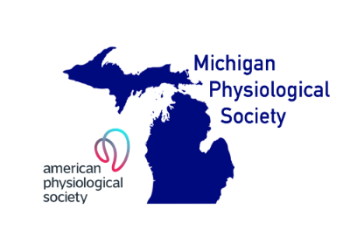Students and faculty from the Department of Kinesiology and Integrative Physiology (KIP) recently attended the 2023 American Physiology Summit in Long Beach, CA on April 20–23, 2023. PhD students Greg Miodonski, Sherry Chen, Kyle Wehmanen, and Isaac Wedig presented posters to their colleagues at the annual event.
Greg, a member of Dr. Qinghui Chen’s lab, did a poster presentation of his research project entitled “Exercise Augments Small Conductance Ca2+ -Activated Potassium Channel (SK) Function in the PVN of Sprague Dawley Rats to Reduce Sympathetic Outflow.” His poster was selected as “top 10% scoring abstracts” sponsored by APS Central Nervous Session (CNS). Read more about his research in his abstract below.
Congratulations to these students for a wonderful showing at the summit!
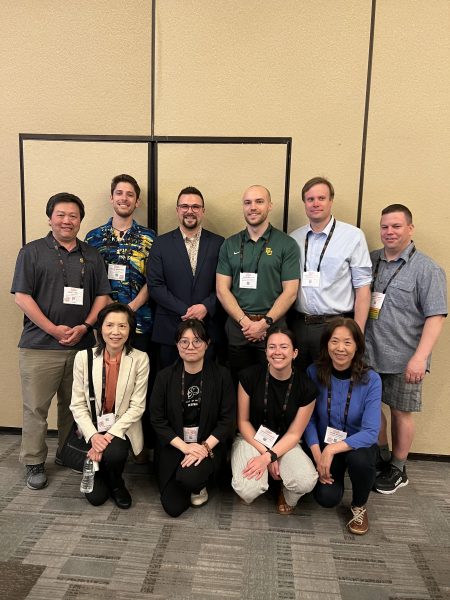
Bottom row from left to right: Mingjun Gu (KIP researcher), Sherry Chen (KIP student), Jennifer Nicevski (KIP alum), Jenny Shan (KIP faculty)
Greg’s Abstract:
“Exercise Augments Small Conductance Ca2+ -Activated Potassium Channel (SK) Function in the PVN of Sprague Dawley Rats to Reduce Sympathetic Outflow”
Gregory Miodonski, Jessica Bruning, Derrick Simet, Haley Ruiter, Christian Johnson, Mingjun Gu, Zhiying Shan, Qing-Hui Chen
Elevated sympathetic outflow is a key feature of cardiovascular disease (CVD) that worsens disease progression. Our lab has shown that SK channels expressed in the PVN play a crucial role in regulating neuronal activity and sympathetic outflow, and that SK channels become dysfunctional in rats fed a high salt diet. Exercise has been shown to be an effective treatment for reducing sympathoexcitation in CVD including hypertension and heart failure, but the underlying mechanisms are not fully understood. We hypothesized that aerobic exercise would upregulate SK channel function in the PVN to reduce sympathetic nerve activity (SNA). To test this, 5–6 week old Sprague Dawley rats were randomly divided into sedentary (SED) and exercise (EXT) two groups and fed a 0.4% NaCl normal salt diet. Following acclimation, EXT groups ran on a motorized treadmill 5 days/week for 8-10 weeks. Conscious blood pressure was measured weekly via tail plethysmography. After 8-10 weeks, animals were anesthetized and underwent in vivo surgery to record the renal sympathetic nerve activity (RSNA) and mean arterial pressure (MAP) following PVN microinjection of the SK blocker, apamin (0.25mM, 60nL/side). The data showed that the RSNA response to PVN apamin was significantly enhanced in EXT rats compared with SED rats (320.8 ± 174.6 % baseline, n=9 vs 184.8 ± 143.1 % baseline, n=9; p = 0.02). The corresponding ABP response to apamin was not significantly different in EXT rats compared with SED rats (20.40 ± 9.98 mmHg, n=9 vs 25.27 ± 9.97 mmHg, n=8; p = 0.1658). Our data indicates exercise enhances PVN SK channel function to reduce sympathetic outflow. This improvement of SK channel function may be one mechanism by which exercise reduces SNA in CVD including hypertension and heart failure. Support: 1R15HL145655 (Chen); 1R15 HL150703 (Shan); MTU Health Research Institute (HRI).
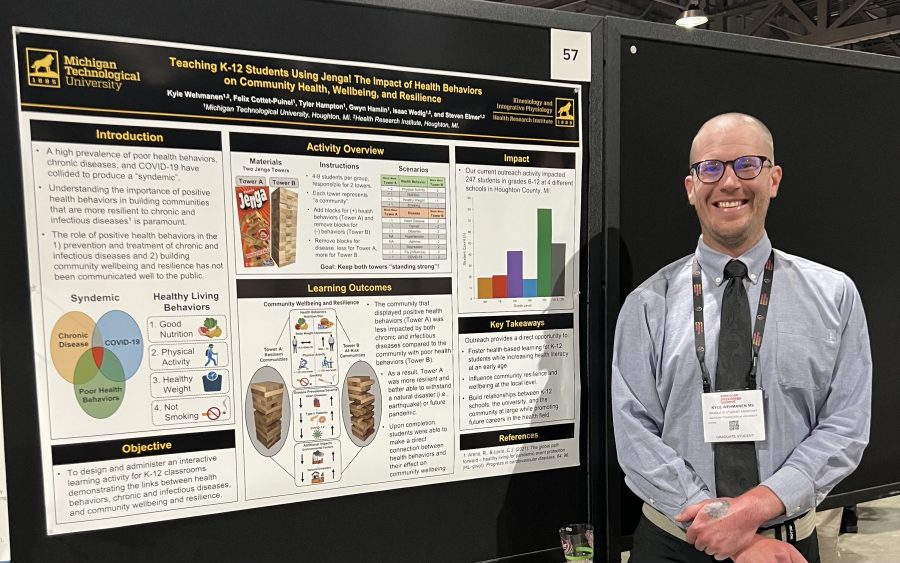
Not pictured, PhD student Isaac Wedig presented his research project entitled “”Predictors of Arterial Occlusion Pressure in the Lower-Body Across Commonly Used Cuff Widths.”
